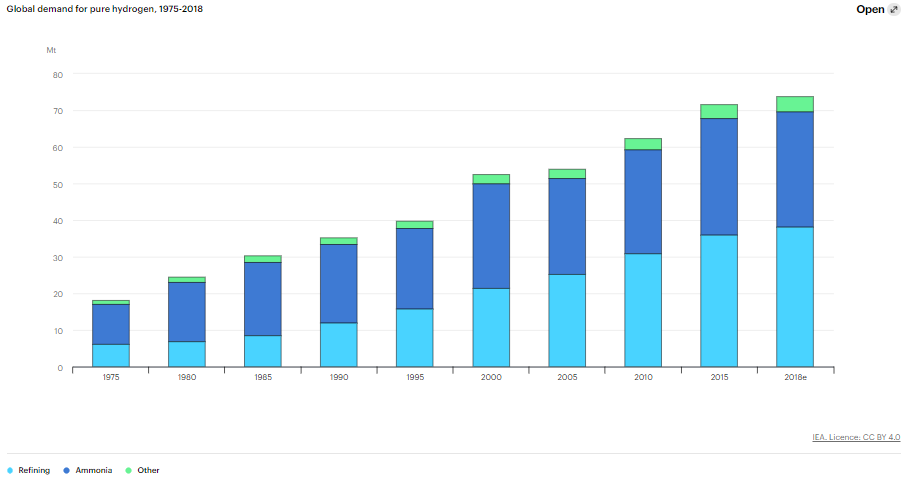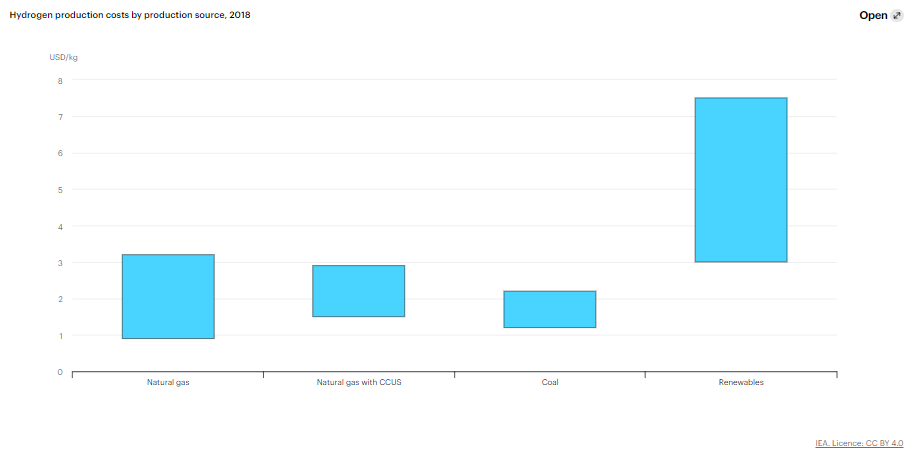Hydrogen Economy – Meaning, Benefits and Future
17 May 2023 – by Eric Koons
What is Meant by Hydrogen Economy?
The term ‘hydrogen economy’ refers to using hydrogen as a primary energy source for electricity generation and transportation.
Can a hydrogen economy be the key to clean energy? As we face the inevitable drain of finite global resources, innovating the energy sector is at the top of every policy agenda. Hydrogen is the universe’s lightest and most abundant element, making up about 75% of its elemental mass.
Green Hydrogen Economy – Produced with Renewable Energy
For the past 150 years, our global economy has been beholden to fossil fuels. One of the most promising alternatives is the concept of a green hydrogen economy. It uses this abundant, non-polluting fuel source to create energy and transport to meet decarbonisation frameworks.
Hydrogen Fuel Cells
Hydrogen can be an emissions-free energy carrier produced from a wide range of renewable sources already part of clean energy programs. It releases no greenhouse gas emissions. When combusted for energy, the only byproduct is water vapour, a neutral byproduct, creating a circular and sustainable alternative to fossil fuels. But the success of hydrogen fuel cell cars depends on many things.
Hydrogen Produced from Fossil Fuels
Demand for hydrogen energy among industrial users has tripled since 1975 and continues to rise. However, it almost exclusively comes from fossil fuels, with 6% of global natural gas and 2% of global coal going to produce hydrogen.
Enter green hydrogen – a clean energy solution untethered to finite fossil fuel resources that are quickly depleting.

Hydrogen Economy Benefits – Advantages
Leaning into the hydrogen economy can pay dividends. Unlike blue or grey hydrogen, green hydrogen production relies on electrolysis with renewable energy.
Hydrogen applications are versatile. Additionally, it offers energy independence, a cleaner path to expanding low-carbon dioxide transportation and can boost the output of existing clean energy frameworks.
1. Green Hydrogen Is a Low-carbon Energy Source
When produced with renewable energy, hydrogen becomes a low-carbon energy source, effectively addressing one of the leading issues with renewable energy: storage. This combination makes renewable energy a viable solution for hard-to-abate industries that electricity alone cannot power.
2. Energy Independence
Domestic hydrogen production is feasible, reducing dependence on imported fuels and offering energy security. This is particularly true for countries lacking raw materials that are struggling with the volatile fossil fuel market.
3. Versatility in Production and Use
Green hydrogen production can be met with domestic resources and clean energy frameworks like solar, wind, hydropower and biomass conversion. It can then be used by various industries and utilities, from powering vehicles to low-carbon home heating.
4. An Alternative to Large-scale Batteries
One of the main drawbacks of renewable energy is the intermittent flow from solar and wind. The current solution lies in large-scale batteries that have their own carbon footprint.
As an alternative, excess renewable energy can be converted directly into hydrogen, available for use during periods of low energy production from renewables.
Is a Hydrogen Economy Possible?
The potential for a hydrogen economy has been debated for years. While some see producing hydrogen as a promising solution for reducing global reliance on fossil fuels, others argue it is not financially feasible.
Currently, the production cost of green hydrogen is significantly higher than fossil fuel hydrogen. Furthermore, the World Economic Forum estimates that a global transition to green hydrogen will require USD 15 trillion in investment. Of this, 85% will need to go towards increasing renewable energy generation and 15% towards green hydrogen infrastructure.

As of 2022, there were only 685 hydrogen fueling stations globally, a fraction of the existing petroleum fueling infrastructure. Furthermore, inadequate pipelines, port facilities and storage capacity make transporting hydrogen and distributing the fuel difficult.
The best solution combines green hydrogen with other low-carbon energy sources.
Future of the Hydrogen Economy
Green hydrogen has the potential to replace key existing fossil fuel infrastructure, and the International Renewable Energy Association (IRENA) believes it is a requirement to reach global net zero carbon emissions.
Today, less than 0.1% of global hydrogen production comes from water electrolysis. However, with declining costs for renewable electricity, there is a growing interest in green hydrogen.
Investment in Hydrogen Technologies
With the incentive to leverage existing renewable energy frameworks, the number of countries with policies directly supporting investment in hydrogen technologies is increasing. Around 50 policies and targets directly support hydrogen, and government investment in hydrogen research and development is on the rise.
“Hydrogen is today enjoying unprecedented momentum. The world should not miss this unique chance to make hydrogen an important part of our clean and secure energy future.”
Dr. Fatih Birol, IEA
However, the transition will take innovation and ongoing support, requiring global leaders to allocate considerable budgets towards the future of the hydrogen economy.
by Eric Koons
Eric is a passionate environmental advocate that believes renewable energy is a key piece in meeting the world’s growing energy demands. He received an environmental science degree from the University of California and has worked to promote environmentally and socially sustainable practices since. Eric’s expertise extends across the environmental field, yet he maintains a strong focus on renewable energy. His work has been featured by leading environmental organizations, such as World Resources Institute and Hitachi ABB Power Grids.
Read more

